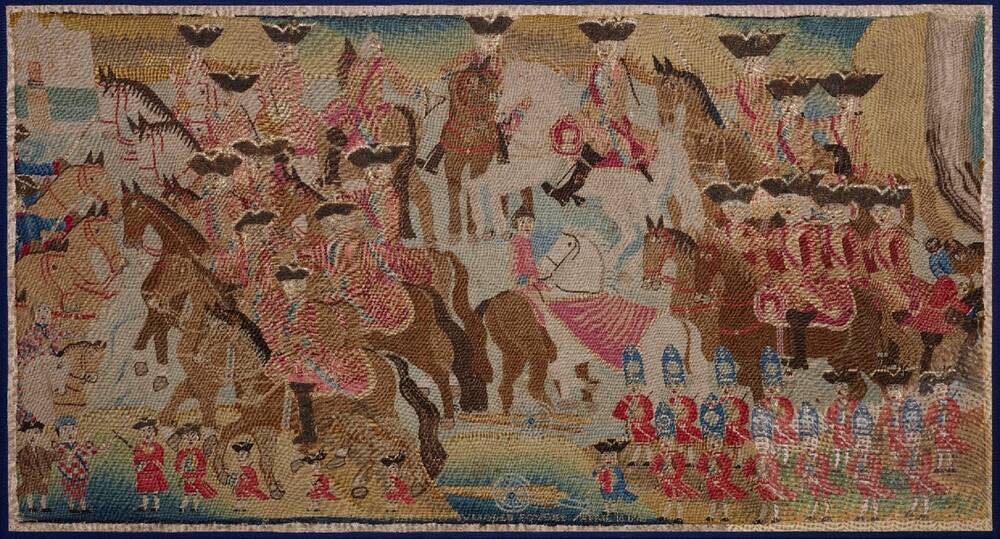The collective social power and reach of the parish minsters in the Presbyterian Church of Scotland was one of the British government’s most potent weapons in quelling the last Jacobite rising.1 These ministers, in addition to being sanctioned recipients for the submission of illegal arms and an integral part of the extensive information network employed to identify alleged rebels, were some of the only people in Scotland that some prominent members of the military felt they could trust.2 Alexander Melville, 5th Earl of Leven, who was High Commissioner of the General Assembly during the Forty-five, remarked to Thomas Pelham-Holles, 1st Duke of Newcastle and Secretary of State, at the end of May 1746 that the loyalty of the Scots clergy was exemplary, and despite ‘the smooth arts of flattery & cajoling’ used by the Jacobites to gain their trust, only two specific ministers were known to have any sensitivities to the cause.3
Tag: sources
Despite the recent, lively debate about the value of the work undertaken by historians, we can agree that many of them generally spend the tenure of their careers involved with research, analysis, and output. Depending upon the era of study and subject matter, dutiful historians will go back to the primary sources when at all possible and critically address the lineage of information as well as its context. Following and challenging that data lineage is something about which I have repeatedly written, and this pursuit represents a significant role in the methodology of my everyday work, as I believe it is necessary in order to produce informed and precise history.
Precise historians will familiarize themselves with as many sources as possible and determine which are most relevant, accurate, and valuable to the arguments which they are asserting. Concurrently, sources that challenge those assertions must also be consulted and may lend valuable perspective to or even transformation of the historian’s original assertions. The honest scholars will admit those changes and influences along the way by showing their work while being as deliberate and precise as possible. Preciseness is not just the end goal, it is absolutely integral to the process. In that way, scholarly history follows a course that rightfully marks it as a social science.
Looking back on 275 years of Jacobite historiography since the end of the Forty-five alone, those of us who are interested in the subject truly are faced with an embarrassment of riches. Despite the dissonant, alternating cycles of Whiggish and sympathetic interpretation and the repeated calls for scholars to stop writing about Jacobites already(!), the broad narratives and fine details of this intricate and mythologized era continue to inspire, challenge, and entice both specialists and the wider public.1 For those who have recently found themselves drawn into the history of the Jacobite century (1688-1788), knowing just where to start can be overwhelming. Even experienced readers and researchers who are already familiar with the subject’s historiography might have missed some excellent titles due to restrictions on access, lack of availability, or simply not knowing that they are out there.
With this in mind, we present a series of short articles to help acquaint folks with finding sources that advance the discipline through rigorous, professional scholarship. This series of posts will cover a number of disparate categories of historiography, starting with academic monographs intended for readers who seek more ‘formal’ material concerning Jacobite studies. Other categories will include, for example, edited anthologies, popular history, antiquarian sources, journal articles, archival collections, and scholar spotlights.
What follows is one passionate historian’s list of ten scholarly works of Jacobite history – or, more accurately, works about historical Jacobitism – that are worth considering as ‘essential’ secondary-source references.2 A few notes about the formation of this list:
• The sources herein are presented in no particular order of value or importance.
• Most, but not all, of the following sources are monographs that focus on broad aspects of the Jacobite century.
• Representing a relatively modern phase of scholarship, books included here were published between 1971 and 2019.
• If a source has not been included in this list, this does not mean it is neither excellent nor worth your time.
• Readers are welcome to chime in with other choices in the comments as long as they are respectful and constructive.
• Keep in mind that this is only the first of a series of ‘essentials’ relating to Jacobite studies!
• A comprehensive (and growing) bibliography of historical Jacobite sources can be found in the JDB1745 Zotero Library.
Welcome to the research blog of JDB1745! Feel free to join in the conversation or contact us with any thoughts or questions you might have.

Tags
Tweets
From the pages of @HistoryScotland's #SpotlightJacobites column is a short study on the soldiers from the British army who deserted their ranks and ended up fighting amongst their #Jacobite foes.
'Switching Sides' is now available on Little Rebellions!
From Jacobean to Jacobite. A nice little case study of how memory is preserved through generations, in this case tipped by the presence of a seemingly anachronistic necklace charm. @arthistorynews @JacRiding @dparrish0 @P14Murray @NL_Heritage
https://www.culturenlmuseums.co.uk/story/james-vi-and-i-his-life-and-times-and-how-the-jacobites-used-his-image/
The MacBean Stuart & Jacobite Print Collection is an important resource. Some 3,500 books and 1,000 pamphlets cover every aspect of the Jacobite rebellions - causes, effects, and personalities.
View the collection here http://abdn.io/B2
#Archive30 #ArchiveCollection
About
Little Rebellions is the official research blog for the Jacobite Database of 1745 project. Within it, we explore archival case studies, share technical notes and features, and contribute to the field of Jacobite studies with news, articles, and event announcements within and across the discipline.
© 2024 Little Rebellions
Modified Hemingway theme by Anders Noren — Up ↑





